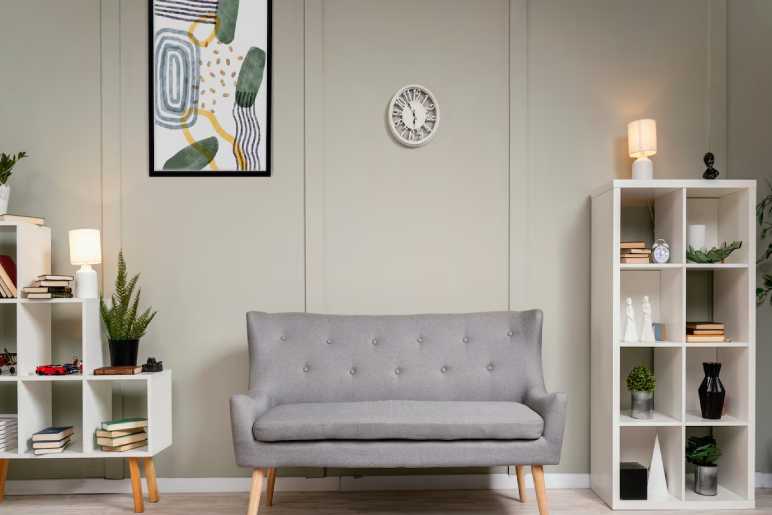Ever dreamt of turning your passion for creating beautiful spaces into a fulfilling career? The home furnishings industry offers a dynamic and rewarding path for those with an eye for design, a knack for functionality, and a desire to help people craft their dream homes. But is it the right fit for you?
A Booming Industry with Diverse Opportunities


The home furnishings market is thriving. Driven by a strong housing market and an increased focus on comfortable and stylish living spaces, the industry is expected to reach over $481 billion by 2025 [source: Research And Markets study]. This growth translates to a wealth of career opportunities, with something to suit a variety of interests and skillsets.
Exploring Your Niche: Specialties in Home Furnishings


The beauty of this field lies in its versatility. Here’s a glimpse into some of the exciting specializations you can explore:
- Interior Design and Decoration: If you have a creative flair and enjoy transforming spaces, this path allows you to curate layouts, select furniture and decor, and bring a client’s vision to life. It often requires a formal education in interior design but starting as a design assistant can be a stepping stone.
- Furniture Sales and Retail: This fast-paced environment is ideal for people who thrive on customer interaction. You’ll guide clients through product selections, answer questions, and close sales. Strong communication and product knowledge are essential.
- Visual Merchandising: Have an eye for creating visually appealing displays? As a visual merchandiser, you’ll design store layouts, curate product presentations, and use creative techniques to entice customers.
- Product Design and Development: This is for the technical minds with a design bent. You’ll translate trends and functionality into furniture pieces, considering materials, ergonomics, and aesthetics. A background in product design or industrial design is beneficial.
- Home Staging: In today’s competitive real estate market, home stagers play a crucial role. You’ll prepare homes for sale by arranging furniture and decor to maximize their appeal to potential buyers.
- Furniture Manufacturing: This sector encompasses a wide range of roles, from production workers and upholsterers to quality control specialists and logistics coordinators. The industry values technical skills and an understanding of furniture construction.
Beyond Creativity: Essential Skills for Success


While a passion for design is a great starting point, a successful career in home furnishings requires a well-rounded skillset:
- Customer Service: Building rapport, understanding client needs, and exceeding expectations are key, especially in sales and design-oriented roles.
- Salesmanship: The ability to explain product features, negotiate deals, and close sales is valuable in retail environments.
- Product Knowledge: A strong understanding of furniture styles, materials, construction, and current trends allows you to advise clients effectively.
- Business Acumen: This applies particularly to entrepreneurs venturing into furniture retail or design services. Understanding market trends, pricing strategies, and marketing is crucial.
- Technical Skills: For some roles, knowledge of software programs like AutoCAD for design layouts or carpentry skills for furniture manufacturing can be advantageous.
The Rewards and Challenges of a Furnishing Career


Like any career path, home furnishings comes with its own set of pros and cons:
Pros
- Creative Expression: If you enjoy design and helping people create beautiful spaces, this field offers immense creative freedom.
- Job Security: The home furnishings industry is relatively stable, with a constant demand for skilled professionals.
- Growth Potential: There are opportunities for advancement within companies or venturing out on your own as a designer, consultant, or retailer.
- Fast-Paced Environment: The industry is constantly evolving with new trends and technologies. Those who thrive in dynamic environments will find this stimulating.
Cons
- Formal Education: Certain specializations like interior design may require a college degree.
- Physical Demands: Some roles involve lifting furniture or working long hours on your feet, requiring physical stamina.
- Retail Hours: Retail positions often involve working weekends and evenings.
- Competition: The industry can be competitive, especially for entry-level positions.
Building Your Dream Furnishings Career


If a career in home furnishings excites you, here are some steps to get started:
- Research and Explore: Learn about different specializations and identify which aligns best with your interests and skills.
- Gain Experience: Volunteer at design firms, take online courses, or intern at furniture stores to build your knowledge and experience.
- Develop Your Skills: Hone your design sense, communication skills, and product knowledge through courses, workshops, or certifications.
Feature image source:- https://tinyurl.com/yck2k6wx

